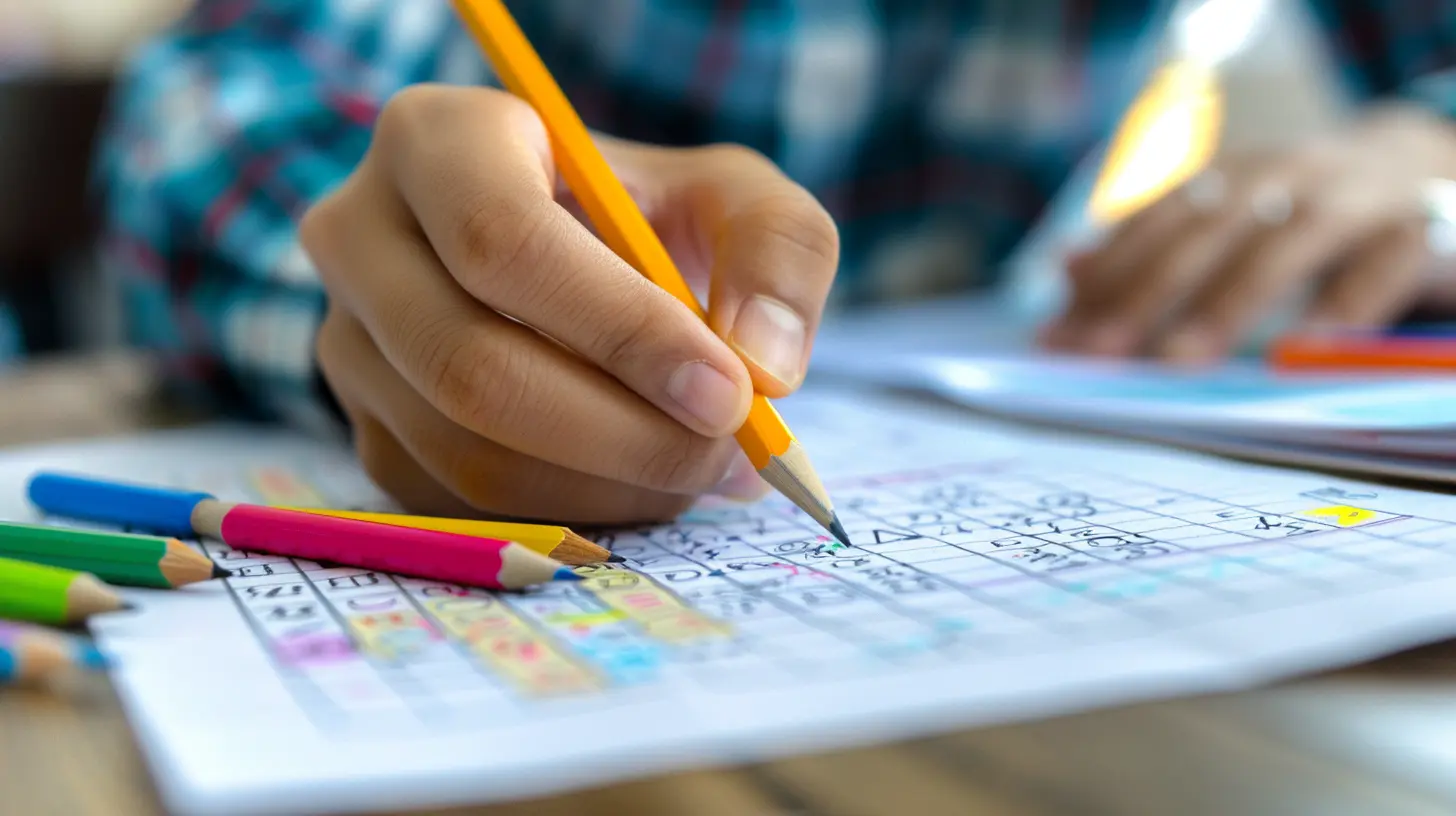Psychological Testing in Schools: Identifying Learning Disabilities Early
15 July 2025
Imagine sending your child to school every day, watching them struggle quietly while others race ahead. They're trying, but for some reason, the letters just won't sit still on the page, or math feels like decoding alien symbols. It’s frustrating—for them and for you. That’s where psychological testing in schools comes in. It’s like handing kids a flashlight when they’re stuck in a dark maze. Psychological assessments can uncover hidden learning challenges that, when tackled early, can change the whole trajectory of a child’s academic life.
In this article, we're diving deep into how psychological testing helps identify learning disabilities early, why timing is everything, and what parents and educators should know to better support these bright, struggling minds.
Why Early Identification Matters (More Than You Think)
Let’s get something straight right away: learning disabilities are not a reflection of intelligence. A student with dyslexia or ADHD can be just as intelligent and capable as their peers. But without the right support, these kids often feel left behind, misunderstood, and even labelled as lazy. That damage isn’t just academic—it’s emotional too.By identifying learning disabilities early, schools can intervene before a child starts to slip through the cracks. Early testing allows educators to understand how a child’s brain works and match teaching to their needs. Think of it like fitting the key to the right lock. Without that fit, no matter how hard you turn, the door just won’t open.
What Exactly Is Psychological Testing?
Psychological testing sounds kind of clinical, right? But it's not as intimidating as it seems. These assessments are designed to get a full picture of a student’s cognitive, emotional, and academic abilities. It’s more than just a test—it’s a deep dive into how a child thinks, learns, and processes the world.Common Tests Used in Schools:
- IQ Tests (like the WISC-V): Measure intellectual abilities and cognitive strengths or weaknesses.- Achievement Tests: Assess academic skills in areas like reading, writing, and math.
- Processing Tests: Look at how the brain processes information—auditory, visual, motor skills.
- Memory Assessments: Gauge both short-term and long-term memory.
- Behavioral Checklists and Rating Scales: Often filled out by teachers and parents to detect issues like ADHD or emotional disturbances.
Each test zeroes in on a different piece of the puzzle. When combined, they paint a clear picture of what’s going on beneath the surface.
Who Conducts These Tests—and Who Decides They’re Needed?
In most schools, psychological testing is initiated once a teacher, parent, or school counselor notices consistent academic or behavioral struggles that don’t improve over time. But here’s the kicker—these challenges have to be significant enough to interfere with learning or social development.Tests are conducted by a school psychologist—a professional trained to administer and interpret various assessments. They're like the Sherlock Holmes of the education world: digging into clues, asking the right questions, and uncovering cognitive patterns that explain a student's struggles.
The Evaluation Process Usually Involves:
1. Referral: Often begins with a teacher or parent raising concerns.2. Consent: Parents must give written permission for testing.
3. Assessment: Over several sessions, the psychologist administers tests and gathers teacher and parent input.
4. Report & Diagnosis: A full report is compiled, often presented in a meeting with parents and educators.
5. Plan: Based on the findings, an Individualized Education Plan (IEP) or 504 Plan may be developed.

How Learning Disabilities Show Up in Real Classrooms
Let’s move past the theory for a second and talk real life. Because these aren't just clinical definitions on paper—they're real kids facing real challenges.Take Jenna, a third-grader who reads two grade levels below her classmates. She’s bright, creative, and knows more about space than most adults. But when faced with a reading assignment, she freezes. Or Max, who’s constantly getting in trouble for interrupting and forgetting homework. His teachers label him as "distracted" or "disruptive", but what they don’t see is the whirlwind of thoughts racing through his mind every second.
These students aren’t failing because they don’t care—they’re struggling because their brains are wired differently. And without testing, they keep fighting battles that feel unwinnable.
The Most Common Learning Disabilities Detected by School Testing
Let’s break down the big ones. These are the learning disabilities most often flagged through psychological testing in schools:1. Dyslexia
Affecting reading, spelling, and writing. Kids may reverse letters, struggle with phonics, or read painfully slow.2. Dyscalculia
Math becomes the enemy. Students struggle with equations, number sense, and even basic arithmetic.3. Dysgraphia
This impacts writing—both the physical act and the ability to organize thoughts clearly on paper.4. ADHD
Not technically a learning disability, but it heavily affects learning. Students may be inattentive, hyperactive, or impulsive.5. Auditory Processing Disorder
Kids hear you just fine—they just struggle to process and understand the information quickly and accurately.6. Nonverbal Learning Disorder
Trouble with visual-spatial tasks, nonverbal cues, or understanding abstract concepts.When psychological testing identifies these conditions early, they don't become roadblocks—they become road signs, guiding interventions and supports.
The Role of Parents in the Testing Process
Here’s a truth bomb: no one knows a child better than their parent. If you’re a parent reading this, your instincts matter. If you see signs—frequent frustration with homework, emotional outbursts about school, or your child saying things like, “I’m just dumb”—bring it up. Trust your gut.Be your child’s advocate. Ask for testing. Push if things stall. It’s okay to annoy the system a little if it means getting help for your child.
And during the testing process, don’t just wait on the sidelines. Provide detailed input during interviews. Share examples. Highlight both struggles and strengths—because both matter.
Challenges and Controversies in School Testing
Okay, let’s talk about the elephant in the room: testing isn’t perfect.Overidentification vs. Underidentification
Some schools over-rely on testing, throwing labels around too easily. Others miss kids completely—especially those who “mask” well.Cultural Bias
Standardized tests can sometimes carry cultural bias, leading to misdiagnosis among minority students.Limited Resources
Some schools have only one psychologist serving hundreds or even thousands of kids. That’s not enough.These are real concerns. But even with limitations, psychological testing remains one of the most powerful tools we have for identifying needs early and accurately. The key is using it wisely—and often.
After the Test: What Happens Next?
So the tests are in, and the results confirm a learning disability. Now what?Here's Where the Real Magic Happens:
- An IEP or 504 Plan is developed to legally guarantee academic accommodations.- Classroom Strategies: Teachers may use techniques like multi-sensory instruction, shorter assignments, and additional time on tests.
- Therapies and Support Services: Occupational therapy, speech therapy, or counseling may be recommended.
- Parental Involvement: Staying engaged, attending meetings, and continuing support at home is crucial.
Psychological testing isn’t the end of the road—it’s the starting line to effective support.
Putting It All Together: A Brighter Future for Every Child
Here's the truth: children with learning disabilities aren’t broken—they just learn differently. And different doesn’t mean less.Psychological testing in schools empowers educators and parents to unlock doors that were previously closed. Early identification transforms confusion into clarity, frustration into progress, and fear into confidence.
It’s like finally being handed the instructions to a very unique, very beautiful machine: your child’s mind.
Let’s use those instructions wisely.
Final Thoughts
Whether you’re a teacher trying to help a struggling student, a parent wondering if something just "isn’t right", or a school psychologist juggling a heavy caseload—what you do matters. Early psychological testing doesn’t just help students succeed in school; it helps them grow into adults who understand their strengths, overcome their challenges, and thrive despite the odds.And really, isn’t that what education should be all about?
all images in this post were generated using AI tools
Category:
Psychological TestingAuthor:

Ember Forbes
Discussion
rate this article
2 comments
Zayn Bass
Unlock hidden struggles before they surface.
February 27, 2026 at 5:51 PM
Zorion McClintock
Great insights on support!
August 2, 2025 at 3:10 PM

Ember Forbes
Thank you! I'm glad you found the insights valuable.


